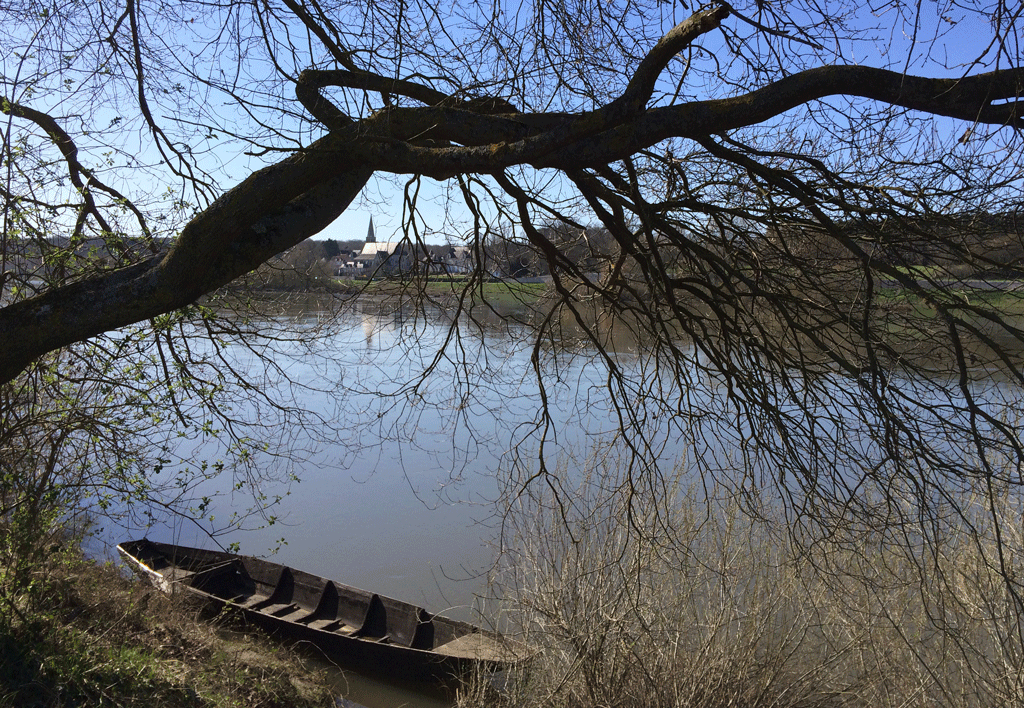Place sounds like is would be an easy word to translate from French to English and vice-versa. Well, it isn’t. Only rarely does it mean the same thing in both languages.

I can think of a couple of situations where the meaning is the same:
Si tu remets chaque chose à sa place, il y aura moins de bazar. – If you put everything back in its place, there will be less mess.
Ce parking a 600 places. – This parking lot has 600 places.
La musique tient une grande place dans sa vie. – Music occupies an important place in his life.
But when it comes to using place in English to mean a physical spot, we no longer use place in French, but endroit.
This is an ideal place for a picnic – C’est un endroit ideal pour un pique-nique.
His coat is worn in several places – Son manteaux est usé à plusieurs endroits.
I put it in the same place – Je l’ai mis au même endroit.
BUT I put it back in its place – Je l’ai remis à sa place. Place here means where it belongs and not a specific physical location.
The word place in French can have all sorts of meanings in English.
Ce meuble prend trop de place. – This piece of furniture takes up too much room. (Note how neat the word meuble is. It literally means anything that is not fixed in place. In English, we would be more likely to say the name of the piece of furniture such as table or chair or sideboard).
Ce village a une jolie petite place. – This village has a pretty little square.
But place du marché can be either marketplace or market square.
And what if the place isn’t a square, but another shape? Sometimes we can use esplanade or piazza. You may have some other suggestions.
When place in French means an individual place in a car or an auditorium, we used seat in English.
J’ai une voiture de cinq places. – I have a five-seater car.
Ils ont un cinéma de 400 places – They have a cinema that seats 400 people or with a seating capacity of 400.
Place can also mean a job in a company.
Elle avait une bonne place mais elle a quitté la société. – She had a good job but she left the company.
Sometimes we don’t even use a noun in English:
Je ne me sentais pas à ma place dans cette soirée. – I didn’t feel comfortable at the party.
The same applies in French:
I’m not fussy. Any place will do – Je ne suis pas difficile. N’importe où fera l’affaire.
Surprisingly, place in English is sometimes rendered by part in French:
It must be some place in the house – Il doit être quelque part dans la maison.
I couldn’t find it any place – Je ne l’ai trouvé nulle part.
It must be some place else – Il doit être quelque part ailleurs.
Another word commonly used in French when we use place in English is lieu.
It’s my place of birth – C’est mon lieu de naissance.
It’s a place of pilgrimage. – C’est un lieu de pèlerinage.
The accident occurred in the workplace. – L’accident est arrivé sur le lieu de travail.
I put it in a safe place – Je l’ai mis en lieu sûr.
So, what, you may ask, is the difference between lieu and endroit? Sometimes they are interchangeable:
This is an ideal place for a picnic – C’est un endroit idéal pour un pique-nique OR C’est un lieu idéal pour un pique-nique.
It’s my favourite stopping place. – C’est mon endroit OR lieu préféré pour m’arrêter.
But you wouldn’t say:
His coat is worn in several places – Son manteaux est usé à plusieurs lieux. You have to use endroit.
Le lieu de rendez-vous n’est pas fixé. – The meeting place hasn’t been fixed. You wouldn’t say l’endroit de rendez-vous.
A lieu is a place where something is located physically. It comes from the Latin locus meaning location.
However, endroit comes from old French exactement. You could say it means in exactly that place.
Il se gare toujours au même endroit – He always parks in the same place/spot = in that exact same place.
Vous l’avez touché à l’endroit sensible – You trod on his corns = You got him exactly where it hurts.
And now, let’s have some suggestions from our readers!




That gets quite complicated fast!
My rule of thumb is: endroit = place; lieu = locality; and place, well you need context because it can be all sorts of things. So for once I think my understanding of the nuances is fairly good.
Yes, that is a good rule of thumb along with the fact that “endroit” is always more precise than “lieu”.
Regret to say that I have ‘managed’ to live in France and have not come across ‘endroit’ knowingly! I love the corns version.
Well, there you go! It can’t be a very oft-used word :).